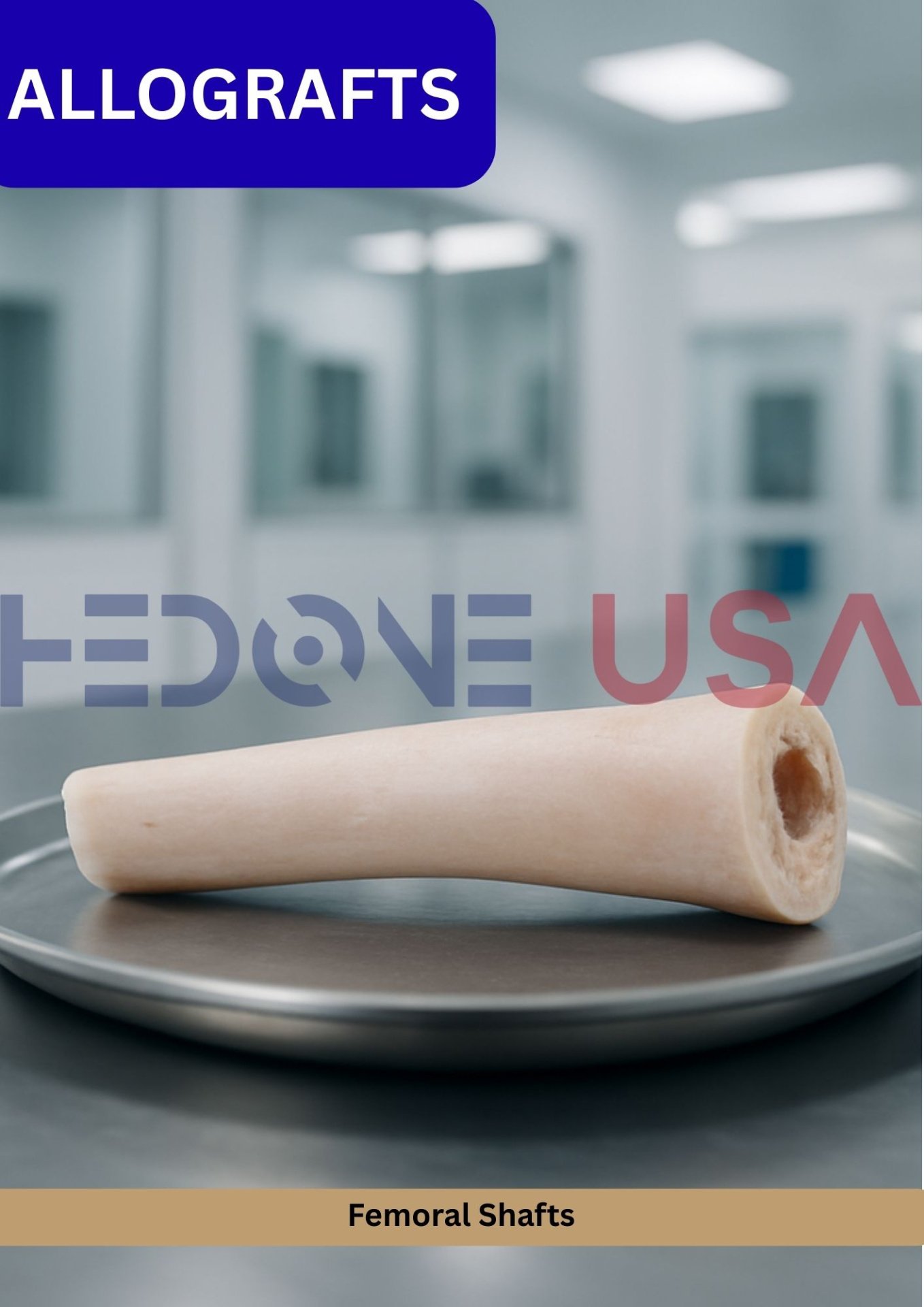Femoral Shafts are long cortical allografts harvested from the human femur. This advanced method guarantees deep cleaning, viral inactivation (SAL 10⁻⁶), and terminal sterilization, while preserving the mechanical strength and biological activity of the graft.
Due to their dense cortical structure, femoral shafts are widely used as load-bearing grafts in orthopedic, oncologic, and reconstructive surgery. They provide exceptional mechanical stability for large bone reconstructions while supporting osteoconductive bone healing and gradual biological integration.
Composition: Dense cortical femoral bone graft.
Biological Properties:
Osteoconductive: Serves as a scaffold for new bone and vascular ingrowth.
Osteoinductive: Retains natural bone morphogenetic proteins (BMPs).
Biocompatible: Fully remodels into host skeletal structure over time.
Oncology: Segmental bone replacement following tumor resection.
Orthopedic Trauma: Large defect reconstruction, limb salvage, and non-union repair.
Revision Arthroplasty: Reconstruction of bone loss in failed hip and knee replacements.
Spinal Surgery: Strut grafts for spinal fusion requiring structural integrity.
Femoral shaft lengths: 80 mm, 100 mm, 120 mm
Custom-cut shaft segments or cortical rings available on request.
